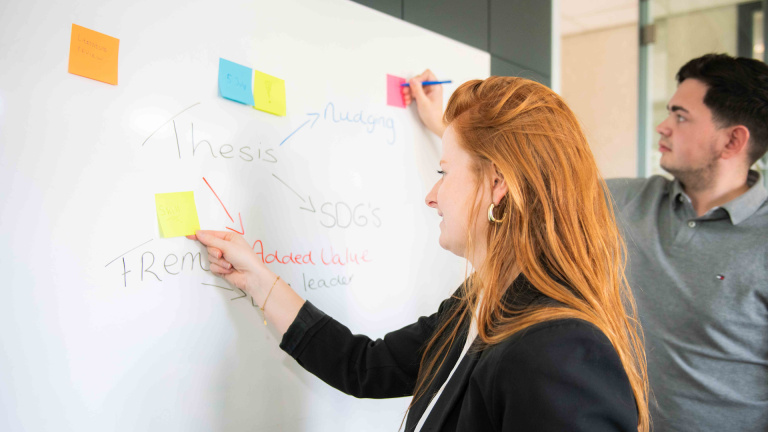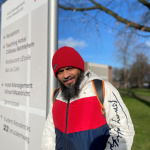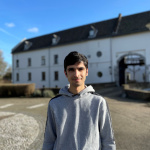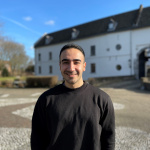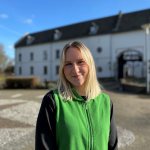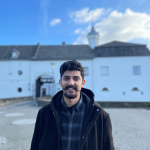What will you learn?
- You will learn how to help organizations achieve their goals by providing attractive working environments, suitable facilities, and good accommodation, while you take into account planet (e.g. use of materials and CO2 emissions), people (welfare and health) and prosperity (affordability and operating costs).
- We focus on the four types of challenges we currently face in the world: Volatility, Uncertainty, Complexity and Ambiguity (VUCA).
- We teach you to discover what type of leadership suits you and the context in which you operate, how to manage change and how to convince others of the usefulness of your plans and proposals.
- Last but not least, you will become a (positive!) critical thinker; someone who reflects and reasons logically, who substantiates their statements and asks questions to get to the core.
- You will be challenged to excel. In this intensive programme you will work on interesting cases, pitches, group discussions and assignments.
Half of the master in Facility and Real Estate Management consists of research, in the research modules and during your thesis. You develop your own research proposal to solve a specific problem, which you execute during your thesis research.
Become part of an international and dynamic group of students, coached by passionate experts and academics who will help you reach your full potential.
Study programme

Below you will find a short description of all the modules in the Master programme.
Strategic Facility Management
The Strategic Facility Management module is all about the question 'How do you increase the added value of FREM?'. You will cover the following themes while keeping in mind how you can save on costs: facilities that are in line with the strategy of the organization, 'the perfect match' between supply and demand, integrated management, insourcing and outsourcing, cooperation with the market, value-driven purchasing (best value procurement), saving costs and increasing quality up without losing sight of sustainability.
Strategic Asset Management
Within the Strategic Asset Management module you will analyze the capital market and investment sector from a broader perspective. In view to potential risks, you will investigate the financial structure and performance of real estate assets (within specific market conditions and real estate portfolio). At the same time, you look at the assessment of a property based on market trends, operating data, predicted returns and property values. Collecting and analyzing relevant data in connection to the (VUCA) context is a major part of the assignment in this module. You learn to analyze financial reports on a general level. You also learn to handle and assess the FREM Planning and Control procedures in an ethical and professional manner.
Strategic Real Estate Management
In this module you will learn how to create and manage a contributing real estate portfolio. More specific: you will learn to align a corporate strategy to a real estate strategy and major aspects of real estate portfolio management. This includes initiating and defining projects to keep the portfolio in good shape and to optimize assets’ performance.
Workspace Solutions
This module will equip you with insights to develop working environments that facilitate both organizational needs (e.g. high productivity and low costs) and employees interests (e.g. being facilitated, flexibility, being connected), while taking into account sustainability considerations, wellbeing, health, activity based working, hybrid working and the opportunities and challenges of a specific building.
Leading Change in FREM environments
You will gain insights about authentic leadership and sustainable change management. Furthermore you gain insights about leadership in FREM environments and VUCA contexts where adaptation and acceptance is not automatically present.
Multiple Value Creation in FREM environments
In this module you learn how new business models can contribute to achieving sustainable goals and how to balance ecological, social and economic value dimensions in a responsible way. We discuss the most important opportunities FREM has to contribute to minimizing footprints with hard- and soft services.
Research Skills
Research skills is all about learning how to critically select appropriate sources, reference sources correctly, build up powerful reasoning (argument mapping will be of help) and avoid fallacies. Since ‘Science is the world of doubt’, we aim to develop an open and curious attitude as a base line from which you learn to reflect and critically evaluate and assess information.
Research Preparations
The aim of this module is to guide you towards a robust research proposal that can and will be a true guide during the execution of the intended research. The proposal will clarify what you will be researching, the relevance, the focus, the research question and sub questions, the design of your research, data collection and -analyses, limitations and how to guard validity and reliability of your research.
Thesis
With your thesis you distinguish yourself and push the boundaries of Facility and Real Estate Management. You will conduct research into a phenomenon or problem that occurs in practice and thereby add something to 'the body of knowledge' of the field. Something that helps to make the studied phenomenon or problem more manageable, to indicate solutions. As a critical and independent thinker, you conduct research into a subject of your own choosing within the field of FREM. An example: hybrid working can no longer be ignored. But how do you organize and regulate this in a way that your m2 use is responsible, working from home is facilitated and the sense of community remains? To find answers you use international, academic literature, but also interviews, a survey and focus groups are often used by FREM students. Your challenge is ultimately to develop conclusions and recommendations with impact. The final product? Your calling card for the industry!
Please note: if you follow the part-time version, the modules are divided over two years. In the first year you will complete the modules: Research Skills, Strategic Facility Management, Strategic Asset Management, and Strategic Real Estate Management. In the second year you will complete the modules: Multiple Value creation in FREM environments, Leading Change in FREM environments, Workspace Solutions, Research preparations, and you will write your thesis.
The difference between full-time and part-time
The master is offered in a one-year (full-time) or two-year (part-time) variant. In the full-time programme you have classes two days a week and in the part-time version you have classes once a week. The rest of the week you manage your own activities: preparing lessons, processing notes and looking for more depth on items from recent lessons and working on your assignments (in the form of papers, presentations, pitches, etc.).
In addition to the part-time variant lasting 2 years instead of 1 year, you also have more opportunities to work alongside your studies. Experience shows that the combination of working and studying in the full-time master is possible, if it remains limited (maximum of 2 days per week). This is because of the study load. What can and cannot be done is very personal. We are happy to advise you!
Please note: Non-EU students can only apply for the full-time master as this is a requirement for obtaining a study visa.
Cooperation with the University of Greenwich
The study programme of the master has been approved by the University of Greenwich,which means they ensure the programme meets their quality standards as a research university in various ways. This ultimately has a positive effect on the value and recognition of your diplomas. In addition, as a FREM student you have access to all their systems, including their digital library. This means you'll have access to countless international scientific resources and papers. A huge advantage for your thesis research. The cooperation with the University of Greenwich means that you will receive a double master degree.




